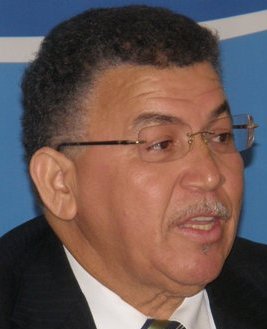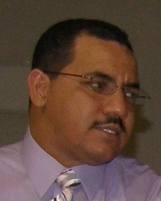Archive for October, 2009

To berth or not to berth….
That used to be the question, but with the decision imminent over who will develop the George Town cruise berthing facility it now seems to be a moot point. Even though it is probably too late, a report from the FCCA this week shows the argument that Cayman’s cruise tourism needs this facility to survive may be greatly exaggerated.
As speculation mounts that the Dart Group, partnering with a consortium of local contractors, will be officially awarded the contract anytime now, the question of whether we actually need this facility at all has been forgotten. Forget the environmental argument (which from a personal perspective I believe should have closed the discussion down years ago), there is a very solid economic argument against it as well.
Despite the fact that the berth is reportedly not going to cost us a dime — or so government keeps saying though there are plenty who disagree — the development may well cost the cruise industry more than it bargained for. While both political parties are sold on the idea of cruise berthing after being persuaded by the voices of the Association for the Advancement of Cruise Tourism and the leadership of the Cayman Islands Tourism Association (if not all its members), the report, published this week by the FCCA, makes it quite clear that Cayman is not only holding its own on the cruise front but is already doing better than some islands with berthing facilities.
Regardless of the long touted complaints that passengers don’t come off the ship because of those pesky tenders, the report revealed that 90% of passengers who come to Cayman aboard a cruise liner get off and visit. That’s one of the highest percentages of all the destinations surveyed. Other destinations with berthing facilities recorded only 80%. So even though the passengers can just saunter off when they feel like it, the passengers still stayed on board, contrary to what we have been told by those in the industry.
The other myth that was debunked by the FCCA report was the length of time cruisers spend on island. Again, the average time cruisers spent in Cayman compared very well to other destinations with piers. Although some of the major resorts where the ships dock over night scored higher than the Cayman Islands, this jurisdiction faired better than many others, with passengers spending well over three hours here. Moreover, the length of time passengers spend at the destination is obviously directly related to how long the ship is in port and the cruise liners coming to Cayman leave early, not because of the tenders but because the casinos are itching to open again. After all, we must never forget what is the leading money-maker for the ships.
Another issue is the money spent on food and drink, which Cayman businesses enjoy even though almost no ships stay in Cayman for the evening. With pier passengers easily tempted to return to the ship to enjoy a free lunch, the need to wait on the tender to take passengers back means those visiting Cayman are more likely to stay in the port and eat so they can enjoy the destination longer. Compared to other jurisdictions with berthing facilities, Cayman again did very well when it came to cash spent in local restaurants.
As Cayman’s average passenger spend was almost $97 per head, when compared to the Bahamas where it was less that $84, Jamaica $93, St Lucia $68, Turks & Caicos $67 and a mere $45 in Dominica, it is hard to make the argument that the lack of a pier is making cruisers in Cayman skinflints.
The danger is that, given the easy-peasy pier for passengers to alight and board at will, the restaurants at the very least will suffer, but so may many of the shops as well. Berthing could see the time passengers spend in Cayman reduced and therefore the overall spend may well decline because of the very fact they can get off and on whenever they like.
The debate obviously has two sides and there will be those who, I expect, will be quick to shout me down — after all, what do I know about cruise tourism? (It’s a good question as I am just an overworked and underpaid hack. In my defence, though, I read the entire report.)
However, judging by the comments made on the CNS website in the last few days, there are a number of people working in the tourism business better qualified than I who are not entirely convinced that the berthing facilities will make all Cayman’s tourism dreams come true.
The gap between the interests of businesses dependent on stay-over tourism and those on cruise tourism is a difficult one to bridge. At a recent public forum on the future of the industry, McKeeva Bush bemoaned the fact that the tourism sector does not speak with one voice and the goal of a common vision was elusive.
It is, however, hardly surprising. Those who cater to the needs of the tourists that come here for a vacation will tell you that the development of facilities for cruisers is exactly why they have stopped coming. Too many people in George Town, too high taxi prices, crowded beaches at peak cruise times, the arrival of Margaritaville and Senior Frogs, for example, are the things that drive those who come to stay on Seven Mile Beach away.
Cayman’s tourism product does have something of a bi-polar disorder, but no one really seems to know what meds it should be taking. So, how do you reconcile the needs of a tourist staying at the Ritz Carlton seeking seclusion and exclusivity with their Mai Tai with those of a cruise passenger looking for a giant lime green cocktail souvenir glass?
What is clear is the development of cruise berthing is hardly likely to be the cure, and if anything it may even push the jurisdiction into full blown case of paranoid schizophrenia.

Auzzie government fund sends cash to CI
(SMH): AUSTRALIA’S $60 billion Future Fund is sending money to Cayman Islands to try to minimise its tax bill.In the past year, the fund has opened five subsidiaries there, with which Australia does not have a tax treaty or information exchange. At the same the Prime Minister has been part of the global push to crack down on the use of such tax shelters. The tax counsel at the Institute of Chartered Accountants, Yasser El-Ansary, questioned the move. ”In this era of increased transparency across the world, perhaps the Government ought to consider whether this sort of approach is aligned to its broader commitments as part of its role in the G20,” he said.

Water authority says BT broken main is repaired
 (CNS): Update — (Friday 1:50 pm). The burst water main near Kipling Street in Bodden Town has now been repaired the Water Authority – Cayman has said. Crews are now clearing up after the maintenance work which left customers located from Kipling St. to the Bodden Town Cemetery without water for several hours this morning. The Water Authority said that it appreciates the patience and understanding of the motoring public and apologizes for any inconvenience this restoration has caused.
(CNS): Update — (Friday 1:50 pm). The burst water main near Kipling Street in Bodden Town has now been repaired the Water Authority – Cayman has said. Crews are now clearing up after the maintenance work which left customers located from Kipling St. to the Bodden Town Cemetery without water for several hours this morning. The Water Authority said that it appreciates the patience and understanding of the motoring public and apologizes for any inconvenience this restoration has caused.

Conch & whelk season opens
 (CNS): Open season for conch and whelks begins on Sunday, 1 November, and runs through 30 April 2010, but the Department of Environment (DoE) is reminding the public that there are laws limiting what people can take with hefty fines and a year in jail if those laws are broken. During the open season the catch limit for conch is 5 per person or 10 per boat, whichever is less. No one may purchase or received more than 5 conch taken from Cayman waters in any one day. During the open season the catch limit for whelks is two-and-a-half (2.5) gallons in the shell or two-and-a-half (2.5) pounds processed whelks per day.
(CNS): Open season for conch and whelks begins on Sunday, 1 November, and runs through 30 April 2010, but the Department of Environment (DoE) is reminding the public that there are laws limiting what people can take with hefty fines and a year in jail if those laws are broken. During the open season the catch limit for conch is 5 per person or 10 per boat, whichever is less. No one may purchase or received more than 5 conch taken from Cayman waters in any one day. During the open season the catch limit for whelks is two-and-a-half (2.5) gallons in the shell or two-and-a-half (2.5) pounds processed whelks per day.
No one may take conch or whelk from any of the marine protected areas at any time. Violation of this and any of the Marine Conservation Laws is an offence carrying a maximum penalty of CI$500,000 fine and one year in jail. Upon conviction, forfeiture of the vessel or other equipment may also be ordered.
To report violations of any marine conservation legislation, call the DoE at 916 4271 (Grand Cayman), 926 0136 (Cayman Brac), or 926 2342 (Little Cayman) or call 911.
For the location of marine protected areas, rules and regulations please visit the DoE website or reference the Island Pages in the Cayman Islands Yellow Pages.
Cops say Reid was murdered by three men
(CNS): Three men, who were heavily masked and dressed in dark camouflage clothes, pumped an indiscriminate number of shots into the car which was being driven by Fabian Reid on the night he was killed. Speaking to News 27 in an exclusive interview, lead investigator, Superintendent Marlon Bodden, said several shell casings were left at the scene, reflecting a targeted shooting. Reid was shot three times while reversing the car and his female passenger was also shot in the leg during the incident on 13 October in North Sound Estates.
More than two weeks after Reid was gunned down in Newlands, Bodden told the television news that the murder was reflective of a new phenomena of people grouping up to commit heinous murders. Bodden also noted that It was not just Reid who was a victim but he said the whole community had been impacted.
“It not only claimed the life of Fabian Reid and injured and traumatized his female passenger, but it has also claimed that North Sound Estate area as a victim,” Bodden added.
The senior office said police were following a number of leads in the case. However, Bodden would not comment on whether they were close to making an arrest.

Mac accuses STEP of politics
 (CNS): The leader of government business has hit out at one of the Cayman Islands’ leading financial associations. Speaking in the Legislative Assembly on Thursday morning, McKeeva Bush accused the Society of Trust and Estate Practitioners (STEP) of playing politics with their criticisms of the government’s budget and fee increases. Bush said the organisation was “causing a racket”, which he believed came from the heart of the opposition. With what he said was wide consultation over the fee increases, for the group to now come out with their criticisms was nothing more than politics.
(CNS): The leader of government business has hit out at one of the Cayman Islands’ leading financial associations. Speaking in the Legislative Assembly on Thursday morning, McKeeva Bush accused the Society of Trust and Estate Practitioners (STEP) of playing politics with their criticisms of the government’s budget and fee increases. Bush said the organisation was “causing a racket”, which he believed came from the heart of the opposition. With what he said was wide consultation over the fee increases, for the group to now come out with their criticisms was nothing more than politics.
Responding to a letter he had received from the STEP chairman, Carlos de Serpa Pimentel, on behalf of the organisation which suggested the fee increases in the 2009/10 budget would harm the financial industry, the LoGB told the House that the organisation was now causing a “racket” after saying one thing during the consultation period but now “going behind backs” to create stumbling blocks.
In an impassioned delivery Bush made it clear he believed the criticisms and objections were being driven by the opposition with veiled references to Antony Duckworth the vice chairman of the organisation and the PPM party chairman. “No duck worth its salt would want to see the country go belly-up,” he said as he expressed his displeasure at what he suggested were STEP’s attempts to derail the government’s plans to get the country’s finances back on track. “We have never had so many politicians in the finance industry as exists today,” he declared.
Bush said that when his party was elected to government in May of this year the country’s finances were in an untenable situation and the UK was putting pressure on government to introduce direct taxation. The LoGB said he had worked tirelessly to find a common position in the financial services sector, which he said did not speak with one voice, to find a solution to avoid the introduction of payroll or property taxes.
“It is my job to get a unified position,” he said, adding that he had consulted widely and there were representatives from the organisation involved in the process. Bush said he was doing everything he could to grow Cayman’s economy again and build up international confidence. “We won’t get growth back with this attitude from STEP,” Bush exclaimed. “We don’t want this politics to undermine what we are doing. ”By building up business again Caymanians would get hired, but that did not seem to matter to STEP," Bush said, as it was “ready to step on people.”
Criticising the media as well as civil servants and others, he said the “twisting and antagonising” could also lead to bad governance and undermine future business. “All of us have to live here, it’s time to settle down,” he added.
The letter from STEP which caused the unplanned outpouring from Bush was sent to his office on 21 October and warned that business will be lost as a result of the significant increases in existing fees and the introduction of new ones. The organisation, which has several hundred members, also noted its concern about the impact of rising violent crime and questioned why government had done little to tackle operating expenses. They also agreed that they did not wish to see direct taxation but were worried what message the UK’s demand to introduce such taxes was having overseas.
“There is a substantial risk that a significant erosion of Cayman’s financial business will occur as a result of a combination of ill-considered and punitive budget measures and uncertainty about the possibility of direct taxation being introduced, all at a time when new business opportunities are hard to come by as a consequence of the global recession,” Pimentel wrote. STEP also asked for clarification on the rationale behind the revenue raising measures and a statement that government will not accept any proposal concerning direct taxation.
Speaking to CNS, Duckworth said that the letter was not a political position and that the points in it were agreed upon by the wider membership. The society would be offended, he said, by the suggestion that they just did what he told them. “The suggestion is rubbish,” Duckworth added. “It was the STEP committee that wrote the letter on behalf of the wider membership and I do not believe there were any dissenting voices at the meeting when the decision was made.”
Duckworth noted that the letter was written in the spirit of the consultation process, which meant when government questioned industry sectors about how certain things would impact their business, they offer a truthful assessment, and then with that knowledge government makes its decisions. He explained that in such circumstances the government needed to hear the unvarnished truth. The idea that the sector could speak with one voice was misplaced, he said, as different areas obviously have different positions on how their business would be impacted by certain measures.
Duckworth also noted that while most of the industry’s various associations saw Cayman Finance as a focal point for the wider PR campaign to dispel the myths about Cayman on the international stage, it could not speak for the entire industry in matters such as this. “It’s maybe handy to have CF to talk to but it does not necessarily speak on behalf of all the associations which make up the financial services industry, especially in matters directly affecting it,” Duckworth observed.
Bush lashed out at STEP as the House considered and passed a bill to amend the Building Societies Law to introduce a regulatory fee of $7,000 for societies registered under the law.

Minister back on track
 (CNS): After what he described as a very frustrating first half term as the education minister, Rolston Anglin says that his attention is now back on the issues relating to teachers and PTAs. Since taking up office after the election Anglin has focused almost exclusively on the school development projects and the budget but is now turning his attention to the process of addressing what is happening in the schools and preparing the regulations that will underscore the Education Modernisation Law that was passed in March of this year.
(CNS): After what he described as a very frustrating first half term as the education minister, Rolston Anglin says that his attention is now back on the issues relating to teachers and PTAs. Since taking up office after the election Anglin has focused almost exclusively on the school development projects and the budget but is now turning his attention to the process of addressing what is happening in the schools and preparing the regulations that will underscore the Education Modernisation Law that was passed in March of this year.
Despite this, Anglin admits that the dispute with the developer of the new Clifton Hunter High School and the redevelopment of the John Gray High School, Tom Jones International is not over yet. Although, after a recent stoppage TJI has returned to the John Gray site and resumed work, the minister said that a figure regarding the $15 million or so claimed in change order charges has not yet been settled, but he was hopeful it could be addressed sooner rather than later.
“We know that the figure in question is not going to become zero, so it is in the developer’s interest to settle this too,” he said. “He is going to get something and the sooner we agree on a realistic figure the sooner the developer will be paid.”
Anglin said that a project manager for both the developments had been identified and he would be in post from next week, at which point the senior staff in the ministry and Anglin would be able to re-focus their attention on other matters. He also noted that the PM would be able to give a clearer understanding of where cost reductions on the interior fit-out of the schools can be made. The minister said he was still hopeful that what have been termed some of the "Cadillac items" could still be cut out but and that would be a priority for the new PM.
“Once the project manager arrives we will have a much better understanding of the realistic situation on these projects,” he said adding that it was crucial that this individual was in place as having criticised what had gone before it was important to make sure the current ministry didn’t make the same mistake of trying to manage the project. The minister explained he would soon be at the point where he was no longer required to be involved in the school situation on a day to day basis.
He said his priority now was to assess some of the problems, concerns and frustrations within the existing schools. Although there are good things going on, Anglin observed, not everything was good. He said there were various concerns among teachers about the current numeracy programme and he had his concerns about the behaviour problems in the schools.
Talking about the education law, he said that he wanted to review the regulations and once those were complete, he said there may be some areas that may sit better wrapped up in the law itself. Anglin said he believed the education law was merely a framework with the regulations intended to shape it. Some areas would be about policy, he said, but things such as how truancy is dealt with probably needed to form part of the law. Anglin estimated that the regulations would be ready by the end of the school year in time to implement the law before the next.
“I want to take a holistic view during this review process,” he said. “There may be some things that we will have to include in the law other things will be left in the regulations.”
Anglin once again reiterated why the current government had chosen to delay the law’s implementation when he said that the teachers and other educators were still not ready as they were not familiar with it and there needed to be further consultation and review.
The former education minister, Alden McLaughlin, however, recently observed that many of the changes the law brought to the education system were policies that were already in place in the system and in the schools as they had been rolled out over his term in office. While the law was passed at the end of the last administration McLaughlin noted that he had begun changing policy as much as three years before. The implementation date had been set for 1 September to coincide with the start of the 2009/10 school year and its delay was described by the former minster as an indication that the content of the law was going to be changed.
“The 1 September start date was carefully considered before it was cited as the day the law would come into force,” McLaughlin said in August. The start date was discussed at length with ministry staff and legislative drafters to make sure that it would offer enough time to put everything that was needed in place and they agreed that 1 September would be sufficient time and appropriate to fit with the school year. There are no justifiable working or technical reasons for this delay; it is about rolling back the transformations that have taken place in the education system.”

Cayman becomes focus for ocean scientists
 (CNS): A group of shark hunters and a group of scientists seeking to explore the earliest life forms on the planet are converging in Cayman this week as the islands’ ocean becomes the focus of important marine explorations. The shark hunters will be working with the Department of Environment (DoE) to carry out surveys of the local shark, whale and dolphin populations. Meanwhile, WHOI and NASA scientists will be plunging a submarine into the depths of the Mid-Cayman Rise to explore the earliest of the ocean’s life forms.
(CNS): A group of shark hunters and a group of scientists seeking to explore the earliest life forms on the planet are converging in Cayman this week as the islands’ ocean becomes the focus of important marine explorations. The shark hunters will be working with the Department of Environment (DoE) to carry out surveys of the local shark, whale and dolphin populations. Meanwhile, WHOI and NASA scientists will be plunging a submarine into the depths of the Mid-Cayman Rise to explore the earliest of the ocean’s life forms.
“We’re really excited to be working with this group of experts on these important issues. Sharks, as top-level predators in our marine environment are key components and we have very little reliable data or information on local species, populations and the pressures they face,” said DoE Deputy Director for Research and Assessment Tim Austin.
“Additionally through this project we hope to expand on local efforts to better understand what species of whales and dolphins use Caymans’ waters as part of their home ranges or a seasonal migratory routes, as currently very little is known.”
The project leader, Dr. Mauvis Gore, said she was thrilled to be back in Cayman.
“The coral reefs here are impressive, but I’m excited that this time we to have the chance to focus on the area’s sharks. Well over 90% of the worlds shark populations have been lost over the past twenty years, largely through illegal fishing simply for making soup in distant restaurants. Here the marine environment is better managed and so there is a chance to ensure that endangered species are not lost.”
Dr Gore became well known for her work on basking sharks on the west coast of Scotland when one of these plankton-feeding giants (which grow to up to 10 metres long) crossed the Atlantic to appear on the coast of Newfoundland. The electronic tag fitted to the shark indicated that as well as travelling over 4,000km, the shark had dived to a depth of over 1200m.
Dr Gore said, “As well as checking on the numbers of sharks still present in Cayman, we need to find out how much they move about and how far they travel. Some of the bigger sharks here, like the tiger sharks, have also been recorded as travelling thousands of kilometres.”
Dr Rupert Ormond, a past director of the University of London’s Marine Biological Station in Millport, Scotland, said that the Save Our Seas has focused on highlighting the plight of sharks.
“In particular our ‘Rethink the Shark’ campaign has emphasised the fact that shark attacks are extremely rare, often the result of provocation, and that many more people are killed by toasters and chairs each year, let alone by bees or cars. In addition the research that we have funded worldwide has shown that the large charismatic sharks play a crucial role in maintaining the balance of the marine ecosystem,” he added.
The project will emphasise collaboration with local fishermen, dive operators and boat owners, who will be invited to share their knowledge and report sightings of sharks, whales and dolphins to the Department of Environment.
Meanwhile, deep down in the Cayman trench, NASA scientists and oceanographers will be seeking to answer questions about how life got started on earth by exploring the deepest parts of the ocean where life cannot depend on sunlight.
 The Cape Hatteras, which crewed by Chris German of the Woods Hole Oceanographic Institution (WHOI) and his colleagues and is the base for the exploration, was spotted in George Town Harbour this week, and according to reports in The Economist, the crew will launch Nereus, an unmanned submarine (left), to explore theunderwater mountain range that lies under almost 4 miles of water near Grand Cayman. The team has picked the Mid-Cayman Rise, part of the 60,000km-long system of mid-ocean ridges that zigzags around the planet, for their exploration because it is a particularly unusual part of that network, which they believe could reveal what the earliest life on Earth looked like.
The Cape Hatteras, which crewed by Chris German of the Woods Hole Oceanographic Institution (WHOI) and his colleagues and is the base for the exploration, was spotted in George Town Harbour this week, and according to reports in The Economist, the crew will launch Nereus, an unmanned submarine (left), to explore theunderwater mountain range that lies under almost 4 miles of water near Grand Cayman. The team has picked the Mid-Cayman Rise, part of the 60,000km-long system of mid-ocean ridges that zigzags around the planet, for their exploration because it is a particularly unusual part of that network, which they believe could reveal what the earliest life on Earth looked like.
The life forms these scientists expect to see might be similar to those that lived before photosynthesis. The vents of most mid-ocean ridges rarely produce hydrogen but there is reason to believe that hydrogen will be abundant in the vents of a particular type of ridge which could be present deep down under the oceans around Grand Cayman.
Scientists say that the ocean floor is the least understood part of the Earth’s surface, so any new data this team uncovers will be welcome. If the probe does come up with hydrogen-eating bacteria, it will give a boost to those who hope to find life on other celestial bodies, particularly ones that are far from the nurturing light of the sun. Today, the Cayman Trench but tomorrow, scientists may be looking on Jupiter’s moon, Europa.
Follow the WHOI exploration.

Accountants say tax policies behind financial crisis
 (CNS): Tax policies around the world have inadvertently fuelled the global financial crisis by encouraging companies to use debt rather than equity, ACCA (the Association of Chartered Certified Accountants) has claimed in a policy paper called Competition or Co-ordination: Reassessing Tax in a Global Environment. The industry body says that the inconsistencies in tax systems need to be ironed out, that G20 nations should be focusing on addressing their own tax problems before those of tax havens, and national sovereignty in tax policy should be respected.
(CNS): Tax policies around the world have inadvertently fuelled the global financial crisis by encouraging companies to use debt rather than equity, ACCA (the Association of Chartered Certified Accountants) has claimed in a policy paper called Competition or Co-ordination: Reassessing Tax in a Global Environment. The industry body says that the inconsistencies in tax systems need to be ironed out, that G20 nations should be focusing on addressing their own tax problems before those of tax havens, and national sovereignty in tax policy should be respected.
Chas Roy-Chowdhury, ACCA’s global spokesperson on taxation issues, said that while G20 leaders have proposed improving co-ordination between national authorities as a key aspect of restoring confidence in global financial regulation, there is a need for similar action in the field of taxation. “Our paper examines the most topical international tax issues, from tax havens to tax competition. Distortions and inconsistencies in tax systems need to be ironed out. Global co-ordination is vital to make sure that tax is fair and transparent,” he said.
The policy paper offers seven clear recommendations to tackle global tax issues and states that governments should address national tax rules which distort behaviour and reward one financing route over another. “Care should be taken to avoid sudden changes, as thiscould require significant wholesale restructuring that could have unintended consequences,” the report notes.
The industry body states that while tax havens should provide information to governments about nationals who use those jurisdictions, the large nations should not focus attention on tax havens as a distraction from the need to sort out their own finances. ACCA also points to the need for the EU and other leading nations to remove the remaining barriers to free trade, and continue to refrain from pressuring ‘flat-tax’ countries to raise their tax rates in the name of ‘harmonisation’.
Governments should address substantive issues of tax law that cause distortions, rather than relying on headline corporate tax rates and ‘holidays’ to attract FDI, the body advises. “By keeping the system as simple and homogeneous as possible, the certainty which business needs will be provided,” the report said.
“We believe the recommendations made in this report would go a long way to addressing some of the challenging current issues in the field of international tax,” added Chowdhury. “Tax policy is and must remain in the hands of sovereign national governments, which should be able to run regimes suited to their stages of economic development, such as the flat-tax systems in post-communist countries in Eastern Europe.”

Booze burgled from North Side home
(CNS): Alcohol appears to be the only items stolen from a residence on Old Robin Road, North Side. The burglary was discovered yesterday morning (28 October) around 7:00am by the caretaker of the premises, who found a rear glass door slightly open and a screw driver lying nearby. An officer from Bodden Town Police Station attended the scene and recovered the screw driver for evidence. Once inside the home is was discovered that a bottle of spirits and some beer had been taken. The matter is under investigation.
Anyone with information of crime taking place can pass it on to police in a number of ways; people can speak with an officer they know and trust, they can reach George Town detectives on 949-4222, they can leave information on an anonymous voicemail service by calling 949-7777 or they can call Crime Stoppers on 800-8477 (TIPS). All persons calling Crime Stoppers remain anonymous, and are eligible for a reward of up to $1000, should their information lead to an arrest or recovery of property/drugs.